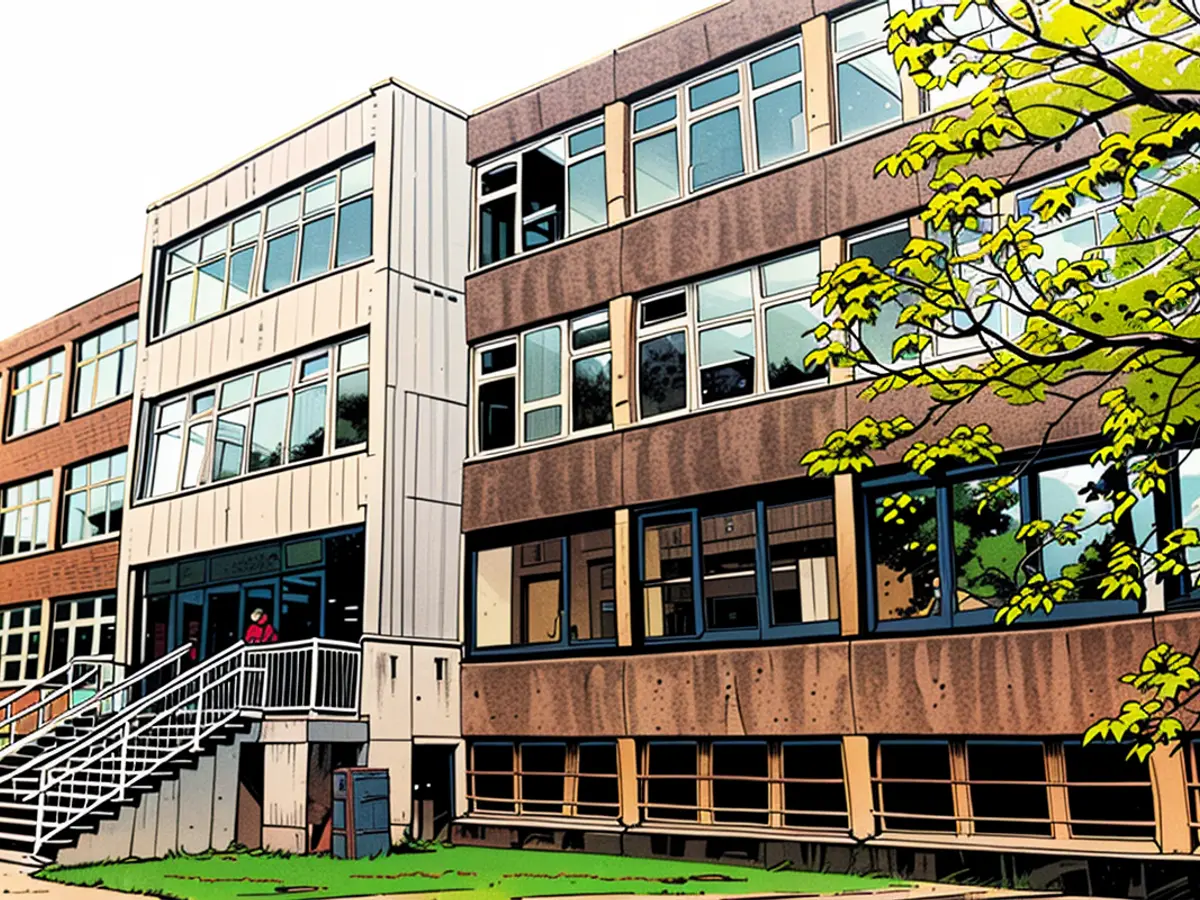- Good marks for pilot project University School Dresden
Positive interim assessment after one-third of the project
The Dresden University School, a unique project nationwide, is entering its sixth year with strong support. After one-third of the 15-year pilot project, the interim assessment by the structure and evaluation commission of educational scientists is very positive. Professor Martin Heinrich from the University of Bielefeld in North Rhine-Westphalia already advocates for removing the experimental status of the school and keeping it permanently.
TU professor Anke Langner and school principal Maxi Heß also draw a positive interim assessment. Learning level tests show that the development of students in mathematics, reading, and writing is not deviating, says the TU professor. Instead of constant drilling, the school focuses on project work and self-regulated learning, which is also "highly interesting" for other schools in times of teacher shortages.
The first final exams were also a success - eight students passed the intermediate school leaving exam in June, two with distinction and an average grade of 1.0.
The Dresden University School is a joint project of the city and the Technical University (TU). Since 2019, new teaching and learning methods have been tested and practiced at the public and free community school under scientific guidance, combining classical reform approaches from Montessori and Freinet pedagogy, as well as Jenaplan.
The concept focuses on relationships instead of education, individual learning paths, talent development, self-responsibility, co-determination, and self-realization.
Interest from parents and teachers remains high
Currently, around 800 children and young people are learning at the special institution in southern Dresden, now also in grade 10. They come to school "with enthusiasm and joy," reported school principal Hess.
For the upcoming school year 2024/2025, there were more registrations than ever before. 150 students were admitted, including 76 first graders. The interest of teachers is also high, according to Langner. There is a clear trend for teachers to be transferred or seconded to the university school.
Good grades from education experts
The Dresden model is still "extremely promising" and unique among nationwide school experiments due to its theory-practice integration, said the educational scientist Heinrich from Bielefeld.
The difference is particularly noticeable in the skills learned beyond the norm: independence, creativity, and solution-oriented working methods. Promoting democracy and resolving conflicts in humane ways is also a focus.
However, the scientist sees a challenge in the equipment of the school. The promised new building is likely to take longer than expected, according to school principal Hess and project leader Langner.
So, teaching will continue in containers up to grade 6, then in an unsanitary school building from the GDR era, with only one lab for natural sciences, and no workshops or kitchen. There is also no proper sports hall - only the primary and middle school has a temporary single-field hall. "Sports lessons are a huge challenge."
The Dresden University School, despite facing challenges with inadequate facilities, continues to garner positive reviews. Despite teaching in containers for younger grades and an outdated building for older ones, the school's focus on project work and self-regulated learning has attracted attention from other schools grappling with teacher shortages.
The esteemed TU professor Anke Langner acknowledges that the development of students in mathematics, reading, and writing is not deviating, highlighting the success of the unique teaching methods implemented at the Dresден University School in Dresden, Germany.








